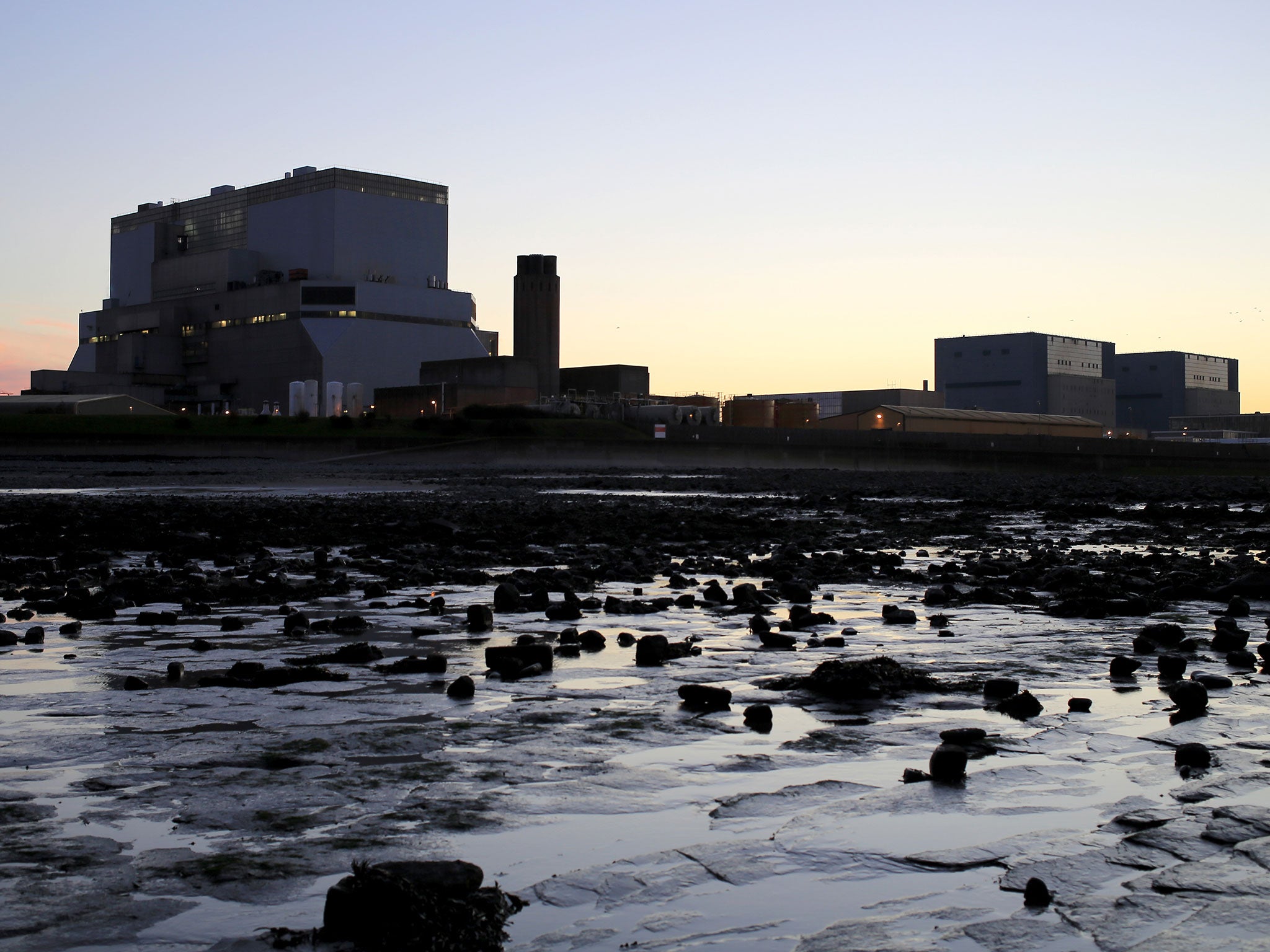Hinkley Point C nuclear power station ‘could suck up 182 million fish a year’ from Severn Estuary, report warns
Cooling system will extract 120,000 litres of seawater a second once the plant is operational

The Hinkley Point C nuclear power plant being built in Somerset could suck in 182 million fish a year from the Severn Estuary once it is operational, experts have warned the Welsh government.
Concern over the impact of the power station comes ahead of a public consultation on efforts by EDF energy to change the agreed conditions on which the French company is going ahead with the construction.
The existing development consent order (DCO) which the power station is subject to requires an acoustic fish deterrent to be installed at the site, but EDF is trying to have this part of the DCO changed so the deterrent is no longer required.
The reason the deterrent was part of the original DCO is because due to the cooling operation required, the design features two vast tunnels capable of sucking up 120,000 litres of cooling water per second from the sea and circulating it through the system to cool the nuclear reactor.
To prevent unwanted marine animals getting sucked in and clogging up the cooling apparatus and dying, the pipes will be fitted with metal grilles, but a new report by independent panel The Hinkley Point C Stakeholder Reference Group, warns that millions of smaller fish and other creatures could still be swallowed up by the system, some of them are likely to die as a result, the report says.
EDF has questioned the calculations used in the report and said it does not match data they have seen which was collated by the Centre for Environment, Fisheries and Aquaculture Science - a branch of Defra.
The acoustic fish deterrent (AFD) which EDF is disputing the efficacy of involves use of subaquatic speakers through which frequencies unpleasant to the fish are blasted in an effort to discourage them from remaining in the area.
Read more:
The Severn Estuary is a unique ecosystemwhere both the river Severn, the longest river in the UK, and the River Wye, the fourth longest, meet the Irish Sea.
It is a vital migratory route for numerous species, including salmon, trout, twaite shad and the globally critically endangered European Eel Anguilla anguilla.
As a result it is, in theory, one of the most highly protected ecosystems in the UK.
“Therefore, there are serious concerns surrounding the proposed removal of the AFD requirement from a WDA [water discharge activity] environmental permit issued in 2013,” the report says.
The authors of the report said EDF has stated it does “not think that an AFD is needed as its removal would have a negligible impact on the fish populations in the Severn Estuary”.
In an email to The Independent, EDF suggested that installing “dozens of sound projectors” in fast-flowing water would pose risks to divers which “cannot be justified for a system that will have almost no benefit”.
But the report urges the original requirements of the Hinkley Point C development consent order permissions are upheld “to avoid any significant adverse short term or long term effect upon the features of the Severn Estuary”.
“With predicted fish loss of 37 tonnes or 182 million fish per annum, the environmental risk is too great,” the report states.
A spokesperson for EDF told The Independent: “The project remains committed to reducing the environmental impact from the construction of a power station which will play a key role in fighting climate change and boosting the Welsh economy.”
“Hinkley Point C is the first power station in the Severn Estuary to include fish protection measures in its design and the acoustic fish deterrent is just one of three planned measures to protect marine life. Studies from government marine experts showed that removing it would have a negligible impact on local fish populations.”
Subscribe to Independent Premium to bookmark this article
Want to bookmark your favourite articles and stories to read or reference later? Start your Independent Premium subscription today.

Join our commenting forum
Join thought-provoking conversations, follow other Independent readers and see their replies